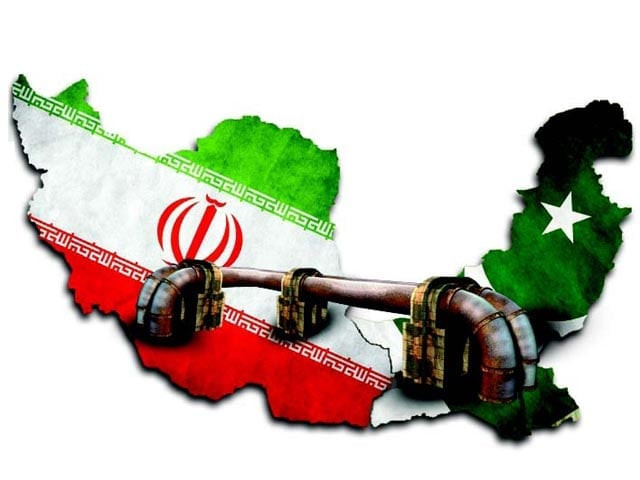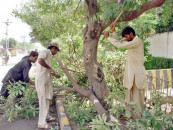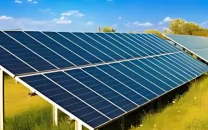Energy cooperation: Iran willing to build Pakistan section of gas pipeline
Delegation from Tehran expected to offer expanded economic collaboration with Islamabad.

Energy cooperation: Iran willing to build Pakistan section of gas pipeline
The offer is likely to come as part of a wider dialogue between the two neighbours on a range of economic issues. Sources said on Monday that Pakistan and Iran are expected to sign four agreements, covering energy, financial services, media and technical cooperation.
Salehi is scheduled to arrive on Tuesday (today), leading a 40-member delegation for the Pakistan-Iran Joint Economic Commission’s meeting, which will be held in Islamabad on September 7. The Pakistani side of the talks is expected to be led by Finance Minister Abdul Hafeez Shaikh.
The Iran-Pakistan pipeline is expected to be a key part of the agenda of the JEC talks. The pipeline was originally meant to have India as its terminal location but New Delhi has not been able to make a firm commitment on the project to date.
Iran has already built its portion of the gas pipeline up to the Pakistani border. The Pakistani portion of the pipeline is expected to cost $1.65 billion, little more than a fifth of the total $7.5 billion price tag of the whole project. The total cost may rise after the completion of a feasibility study. It is expected to begin supplying gas to Pakistan by the middle of 2014.
(Read: Iranian gas pipeline - Pakistan seeks financial adviser for project)
At its peak, the pipeline is slated to supply up to 55 billion cubic feet of gas from Iran’s South Pars field to Pakistan. That amount is expected to cover about 20% of Pakistan’s current demand, and would not be enough for the rising need for gas in the Pakistani economy.
Government officials say all of the supply from the Iranian pipeline will be dedicated for power production and would be expected to generate up to 5,000 megawatts.
Production costs for gas-fired power plants are about 35% less than those for oil-fired power plants.
Tehran is also expected to offer assistance in building three power plants in Pakistan, with a total capacity of 250 megawatts, including a 150-megawatt coal-fired power plant and about 100 megawatts of wind power generation capacity.
Among the more controversial aspects of the visit will be Iran’s request to set up branches of the state-owned Bank Melli in Pakistan. The bank has been placed on several international sanctions lists, including those of the United States. Islamabad is expected to reverse its earlier stance on the request and move forward with Iran’s proposal.
Not having banking operations in other countries has made it difficult for Iranian businesses to conduct trade. The State Bank of Pakistan is expected to begin guaranteeing letters of credit – a necessary tool for global traders to exchange payments – for trade with Iran, which is expected to help increase the volume of commerce between the two nations. An Iranian diplomat said that Tehran is targeting increasing bilateral trade from the current $1.2 billion to $4 billion by 2014.
The two nations are also expected to discuss expanding air travel, including commencing direct flights between Islamabad and Tehran. Currently, there are direct flights from Karachi and Lahore to Tehran and Mashhad.
Iran is also expected to request meat and livestock exports from Pakistan as it tries to switch over from more expensive supplies from Europe. Tehran has already invested in a meat processing plant in Lahore geared to exporting beef and mutton to Iran.
(Read: The rise of Pakistan in the global meat trade)
As a direct corollary of the meat and livestock trade, Pakistan and Iran are also expected to agree to closer collaboration on quality control. A cooperation agreement is expected to be signed between the Pakistan Standard Quality Control Authority and Iranian Research and Industrial Institute.
A separate agreement is also expected to cover media cooperation between the two countries.
Published in The Express Tribune, September 6th, 2011.


















COMMENTS
Comments are moderated and generally will be posted if they are on-topic and not abusive.
For more information, please see our Comments FAQ